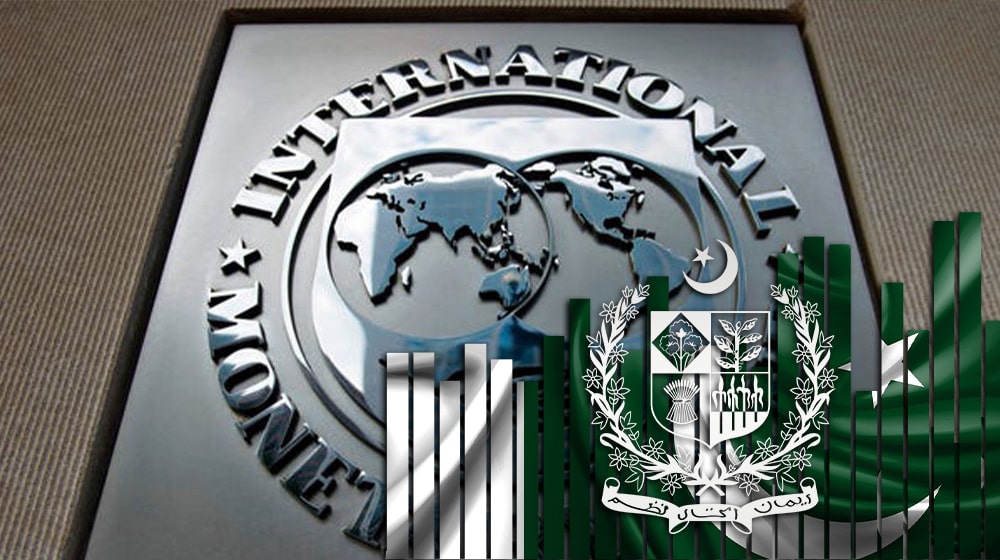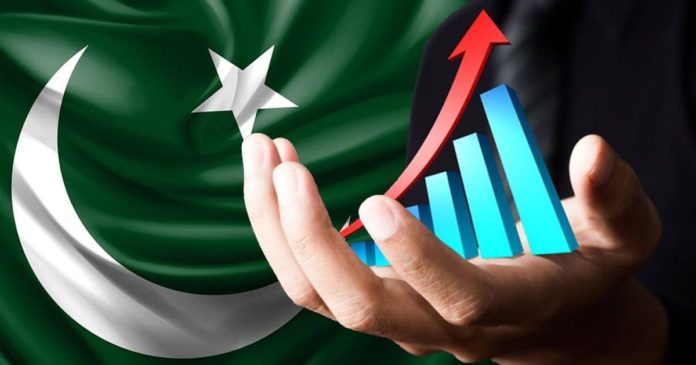As a sovereign state, Pakistan cannot sustain itself politically and militarily without long-term economic stability. Despite having a significant geo-economic location and potential natural resources the country is plagued by severe economic crises – an increasing debt, a fiscal deficit, burdensome public corporations and low taxation. If the government continues to disregard the brewing economic issues, the country will soon run out of monetary resources to meet its ever-increasing import bills and pay salaries to its employees.
The importance of the economy can be gauged from the fateful disintegration of the erstwhile Soviet Union. When Soviet leaders turned a blind eye to restructuring their economy, the USSR could not sustain itself and disintegrated into many independent republics in the early 1990s. The same unfortunate fate could befall any country if its elected leaders ignore the required economic reforms.
Back in the 60s Pakistan’s economic growth was one of the fastest in the world on account of the short-lived good governance introduced by the then president Ayub Khan. The country’s GDP per capita was $116 in 1965 while China and South Korea’s GDP per capita was only $98 and $109, respectively. Today, due to unrealistic economic goals, rampant corruption, entrenched bad governance and the dearth of tax reforms, our current GDP per capita is nearly $1,600 while China and South Korea’s GDP per capita are about $8,123 and $27,538, respectively.
Moreover, Pakistan’s exports were the same as those of South Korea in the 1960s but now, South Korea’s exports stand at $560 billion while ours are nearly $20 billion and constantly plummeting due to the lack of pragmatic and long-term economic vision.
Despite its bad economic performance, the PML-N government has made some economic strides. Owing to CPEC and the relatively improved security condition, the country’s economic growth has reached nearly five percent. The government has succeeded in decreasing the inflation rate to four percent. According to Bloomberg, Pakistan has made an annual growth rate of eight percent in the retail sector, leaving India, South Korea and the UAE far behind. If this upward trajectory continues the growth rate of the same sector will reach about 50 percent by 2021.
Regardless of these economic headways, the incumbent government has failed to resolve some of the most daunting challenges grappling the economy. The most pressing challenge that plagues the economy is the ever-increasing fiscal deficit. The country’s budget deficit has reached about 5.8 percent of the GDP and is projected to rise to around eight percent at the end of 2017-18. Worryingly, this 5.8 percent fiscal deficit does not include the circular debts of Rs400 billion.
Although there is a widening gap between the government’s expenditures and income, the PML-N has continued to display reluctance to cut down the substantial costs of its ministry. The incumbent cabinet has about 50 ministers and a raft of advisers. The government should adopt drastic austerity measures by decreasing the number of its ministries, lowering its import bills and eliminating daily corruption of Rs12 billion. Any delay could slide the country toward a 1999-like situation when the budget deficit reached an unmanageable level.
Whenever the government runs short of monetary resources, it myopically resorts to borrowing money rather than broadening taxation and decreasing its unnecessary expenditures. Due to such repeated borrowing, the country’s total debt has reached Rs25 trillion compared with Rs14.8 trillion in 2013. The dismal state of the economy shows that the government will soon knock on the IMF’s door for another bailout package to cushion the falling house of the economy.

Such imprudent stability measures have increased America and the IMF’s role in Pakistan’s economy and security dynamic, respectively. The government should keep in mind that it can never stabilise the economy and make Pakistan a regional trade hub and economic power by means of loans and grants. For long-term economic stability, the government should broaden taxation, document the whopping black economy and exploit indigenous natural resources.
Since a large number of the country’s affluent politicians and bureaucrats own national enterprises, they have deliberately avoided bringing their businesses under the tax net. Instead, they issue amnesty schemes to reap benefits for their factories and sugar mills. As per some estimates, only one million people pay taxes in the country. Of these people, 0.4 million capitalise on the country’s flawed tax laws to pay fewer taxes by colluding with the FBR officials. According to a credible report, Pakistan loses about Rs.3,200 billion annually on account of the FBR’s inherent inefficiency and corruption.
The agricultural sector constitutes one-fifth of the national economy, with a share of 60 percent in exports, and provides jobs to nearly 43 percent of the country’s labour force. Despite its large share in exports, the agricultural sector accounts only one percent of provincial taxes and 0.09 percent of federal taxes. All provincial governments have dragged their feet to levy reasonable taxes on agriculture because most MNAs and MPAs possess large swathes of cultivable lands. Furthermore, these self-centered politicians do not want to anger the farmer community only to retain their vote banks. The political leadership should alter such parochial mindsets and properly tax the agriculture sector. A large portion of agriculture taxes should be used to modernise the sector and establish agricultural universities in rural areas to train farmers. Modern training will increase the productivity and efficiency of the agricultural sector.
Countries establish national corporations to increase the sources of their revenue. But Pakistan’s public-sector corporations have failed to yield revenues due to political mismanagement, rampant corruption, overstaffing and nepotism. The total losses of the country’s national corporations stand at Rs1,052 billion compared with only Rs538 billion in 2013.
Another major challenge that bedevils the economy is the massive money laundering through informal channels. According to the US State Department, around $10 billion is annually laundered from Pakistan to foreign countries. Such illegal practices only become possible through the direct complicity of the FIA and the customs department officials. The illicit business of money laundering creates a shortage of foreign exchange reserves in the country. To prevent this thriving business, the government should empower the FIA and the customs department.
Owing to the aforementioned economic challenges, 5.3 million of the country’s 120 million youth are currently jobless and 1.7 million workforce is working abroad. The government should produce two to three million jobs to save the country’s 60 percent youth from falling into the wrong hands. Since the private sector is the main engine of creating employment opportunities, the government should facilitate private investors by easing business and taxation laws. This will also help Pakistan improve its current 147th position in the WB’s ranking on the ease of doing business.
More importantly, the government should increase the value of its products in the world market. This will revive dormant industries in the country, increase exports and foreign exchange reserves and produce millions of jobs for the educated and skilled youths.
As China imports 10 percent of food items from its imports worth $2 trillion from across the world, Pakistan should modernise its agricultural sector and bank on CPEC to export agricultural products to China.
India’s economy will become 40 percent larger than Pakistan’s economy by 2050 if its current growth rate continues unabated. So, any delay or reluctance to strengthen our economy will create threatening economic and security challenges for us in the future.




